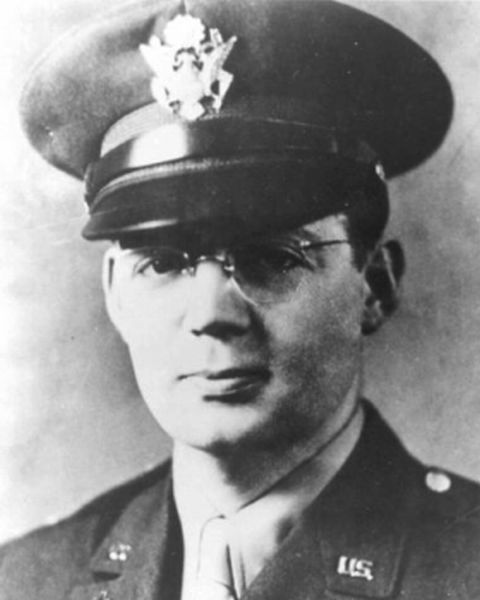Washington, John P.
- Date of birth:
- July 18th, 1908 (Newark/New Jersey, United States)
- Date of death:
- February 3rd, 1943 (North Atlantic Ocean)
- Mentioned on:
- East Coast Memorial U.S.A.
- Nationality:
- American
Biography
John P. Washington was born in Newark, New Jersey on 18th July 1908 as one of eight children in the family of Frank and Mary Washington. As a religious boy from Irish parents, he became an altar boy at his local church in Newark. After basic school he was accepted to the Seton Hall Preparatory School in South Orange, New Jersey. After graduation het joined the Immaculate Conception Seminary School of Theology, where he took minor orders in 1933 and became an ordained priest in 1935.
Before the outbreak of the Second World War in December 1941, he served at several parishes in New Jersey, but then joine the U.S. Army. He first was stationed in Indiana and Maryland, but was then send to Taunton Massachusetts, foloowed by the Harvard University to attend the Chaplains School. Here he met his fellow chaplains George L. Fox, Alexander D. Goode and Clark V. Poling. In January 1943 they were embarked on the U.S.A.T. Dorchester, destined for Greenland and the United Kingdom.
On 2nd February 1943 the ship was torpedoed by U-223. John P. Washington stayed, together with the other three chaplains with the men that could not leave the ship and died.
Do you have more information about this person? Inform us!
- Period:
- Second World War (1939-1945)
- Rank:
- First Lieutenant
- Unit:
- Army Chaplain Service
- Awarded on:
- 1944
"For extraordinary heroism in connection with military operations against an armed enemy, in action against enemy forces on 3 February 1943. Chaplain Washington was one of four Army Chaplains aboard the U.S.A.T. Dorchester which was torpedoed in the North Atlantic. He and his comrades bravely brought order to panicked soldiers as the ship was sinking and, when no more life jackets were available, he gave up his own life jacket to another man. Chaplain Washington's intrepid actions, personal bravery and zealous devotion to duty at the cost of his life, exemplify the highest traditions of the military forces of the United States and reflect great credit upon himself, his unit, and the United States Army."
War Department, General Orders No. 93 (1944).
Awarded posthumously.
- Period:
- Second World War (1939-1945)
- Rank:
- First Lieutenant
- Unit:
- Army Chaplain Service
- Awarded on:
- January 18th, 1961
On 2nd February 1943 the U 223 spotted a convoy. The U boat closed in and fired a torpedo which struck the Dorchester shortly after midnight. Hundreds of men packed the decks of the rapidly sinking ship and scrambled for the lifeboats. Several of the lifeboats had been damaged and the four chaplains, Methodist Reverent George L. Fox, Rabbi Alexander D. Goode, Reformed Reverent Clark V. Poling and roman Church Fryer John P. Washington, began to organize frightened soldiers. They distributed life jackets from a locker and when the supply of life jackets ran out, each of the chaplains gave theirs to other soldiers. When the last lifeboats were away, the chaplains prayed with those unable to escape the sinking ship. 27 Minutes after the torpedo struck, the Dorchester disappeared below the waves with 672 men still aboard. The last anyone saw of the four chaplains, they were standing on the deck, arms linked and praying together.
- Period:
- Second World War (1939-1945)
- Rank:
- First Lieutenant
- Unit:
- Army Chaplain Service
Awarded posthumously.
- Period:
- Second World War (1939-1945)
Sources
- Photo 1: U.S. Government
- Photo: U.S. Government photo
- - The Four Chaplains Memorial Foundation
- Home of Heroes






